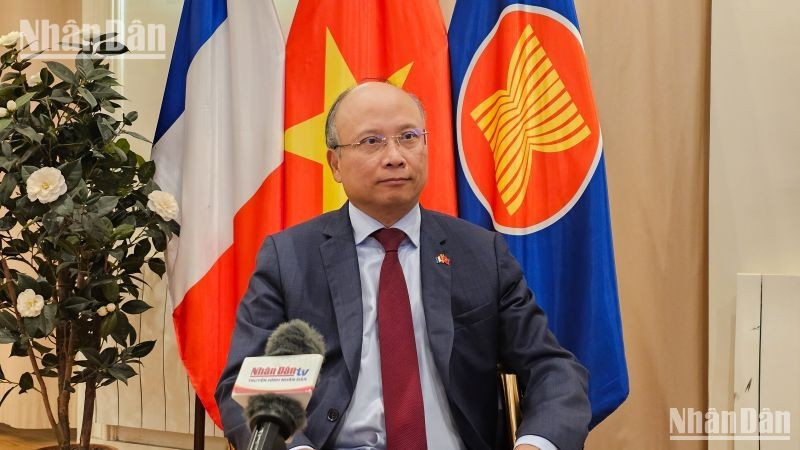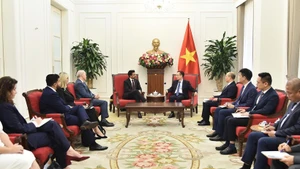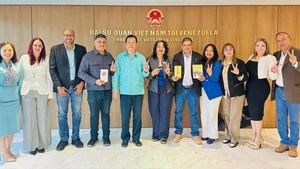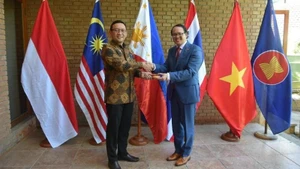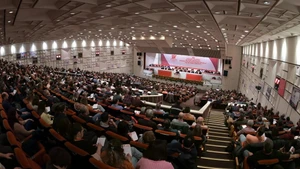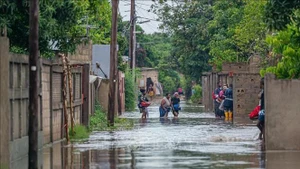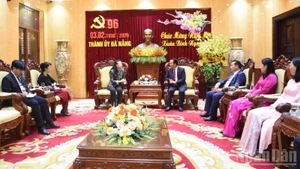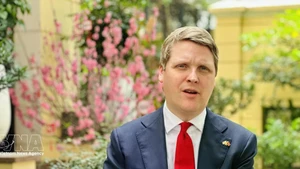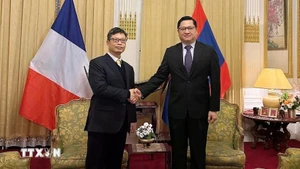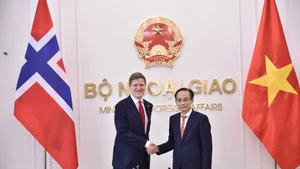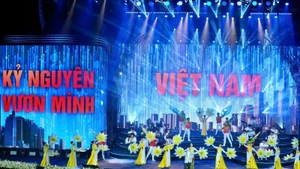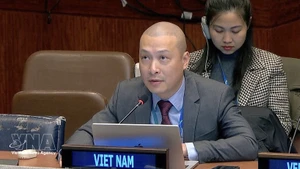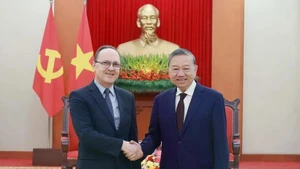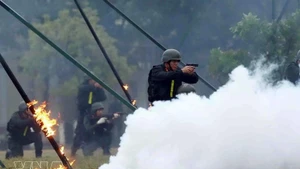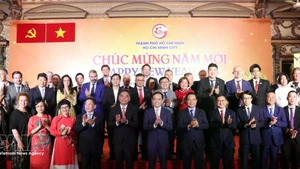He made the remark in an interview granted to the Vietnam News Agency (VNA)'s resident correspondent on the occasion of Lam’s trip to attend the 19th Francophonie Summit and official visit to France from October 4-7.
Thang said that more than 50 years since the establishment of diplomatic ties and 11 years since the formation of the strategic partnership, the Vietnam - France relations have seen both quantitative and qualitative accumulation and are witnessing new strides in all aspects.
In that context, the Party General Secretary and President’s visit to France is of critical importance, he said, noting it is the first by a head of state of Vietnam to this European nation in 22 years.
The trip reflects the fact that Vietnam treasures the positions of France and Europe in its foreign policy, as well as the development of the bilateral relationship. It will strongly convey the message about an independent and self-reliant Vietnam that is promoting the multilateralisation and diversification of external relations; wishes to further intensify ties with major countries, important partners, and traditional friends, including France, the European Union (EU) and Europe; and respects multilateralism and international cooperation.
Aside from helping enhance political trust between the two countries’ leaders and the traditional friendship between the two sides, activities during the visit will create new momentum and open up a new stage for elevating the Vietnam - France strategic partnership to a new height for the sake of both countries' people, as well as peace, cooperation, and development in the region and the world, Thang noted.
He went on to say that Vietnam and France now hold many favourable conditions for strengthening the bilateral ties. France has a high stature and political prestige in the world, a developed economy, along with a role of leading importance in Europe and the EU. It is actively promoting its role as a founding and key member of many crucial regional and international organisations. Meanwhile, Vietnam boasts a fast-growing economy, dynamic foreign relations and integration, and an important position in the Association of Southeast Asian Nations (ASEAN).
Both sides attach importance to and highly value each other’s partnerships in the relations between the two continents, the two regions, as well as between ASEAN and the EU. The two nations also share many common concerns about peace, stability and cooperation, along with common values such as multilateralism, respect for international law, and support for the United Nations Charter.
At recent meetings, leaders of Vietnam and France affirmed the common perception of a new vision for the strategic partnership on the basis of the identified and enhanced cooperation pillars. Many significant highlights have come into being in the promotion of political trust, people-to-people exchange, national defence - security, economy, trade, investment, aviation, energy transition, science - technology, and culture, according to the ambassador.
He perceived that the two countries now have numerous opportunities to elevate the bilateral cooperation in terms of both quantity and quality, particularly when both nations are facing great requirements for national development and contributions to the international community’s efforts for peace, cooperation, and development.
Thang said the strong political resolve of both countries’ leaders, the great support of people from all walks of life, and the active engagement of partners in all spheres will generate a new impetus for further deepening the bilateral cooperation. That relationship will help the two countries continue reinforcing their strength and statures in a changing world that is now in need of enhanced partnerships to jointly cope with common development, security, and stability challenges.
To develop the bilateral ties more strongly, Vietnam and France should coordinate with each other more efficiently and comprehensively in all fields from economy, security - defence, trade, investment to science - technology, education - training, innovation, digital transformation, green transition, culture, and people-to-people exchange. Each side should identify their demand and advantages so as to secure practical and mutually beneficial cooperation, the diplomat suggested.
